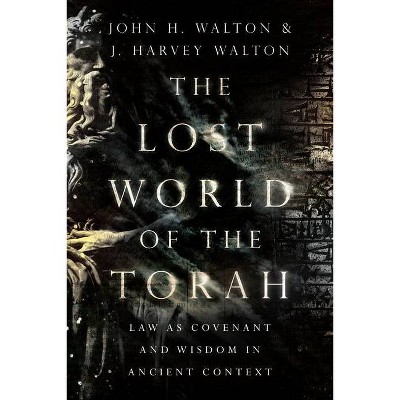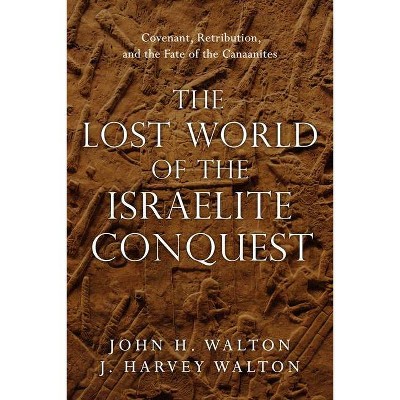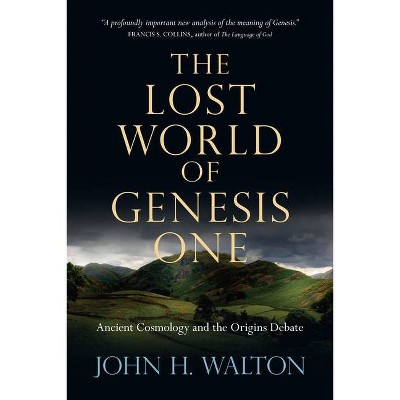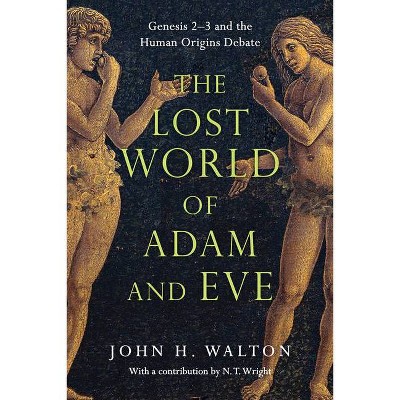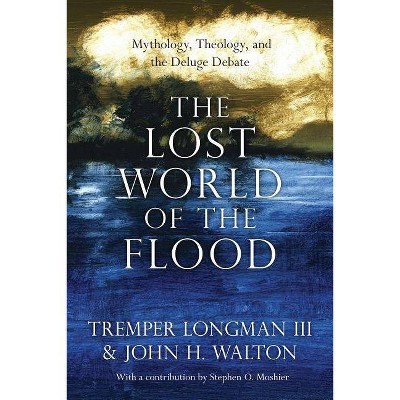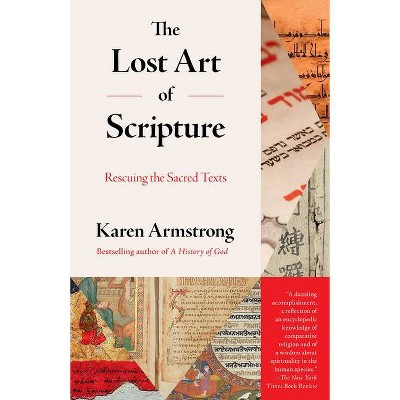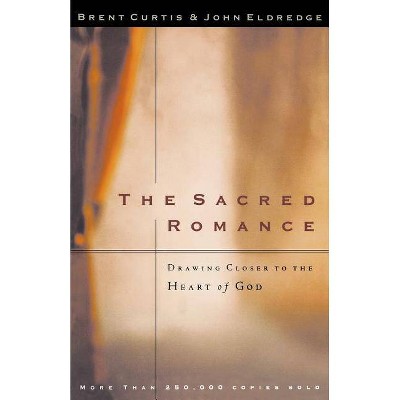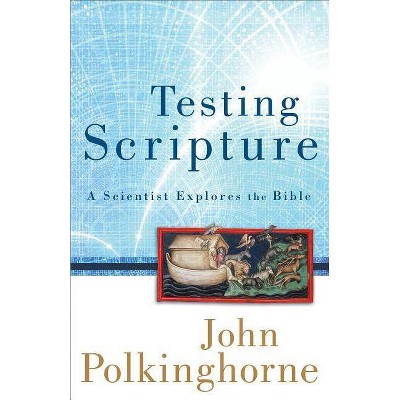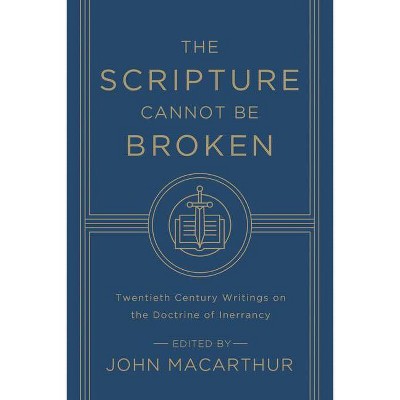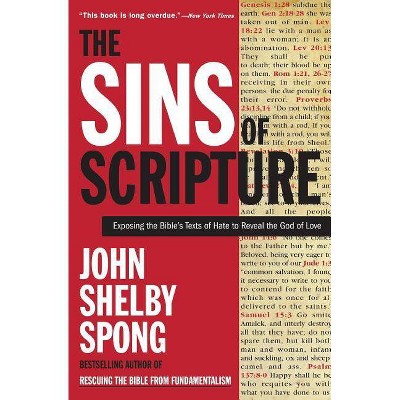The Lost World of Scripture - by John H Walton & Brent Sandy (Paperback)
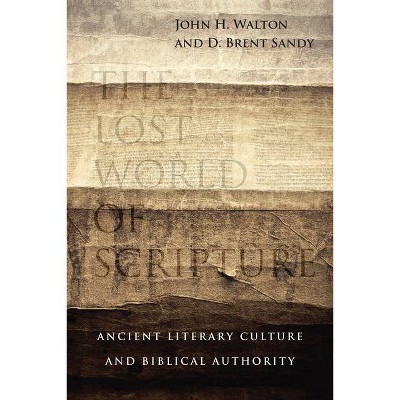
Similar Products
Products of same category from the store
AllProduct info
<p/><br></br><p><b> About the Book </b></p></br></br><p>Walton and Sandy summarize what we know of orality and oral tradition as well as the composition and transmission of texts in the ancient Near East and the Greco-Roman world, and how this shapes our understanding of the Old and New Testaments. The authors then translate these insights into a helpful model for understanding the reliability of Scripture.</p><p/><br></br><p><b> Book Synopsis </b></p></br></br><ul> <li>2014 Readers' Choice Awards Honorable Mention</li> <li> <em>Preaching's</em> Preacher's Guide to the Best Bible Reference for 2014 (Scripture/Hermeneutics)</li> </ul><p>From John H. Walton, author of the bestselling <em>Lost World of Genesis One, </em> and D. Brent Sandy, author of <em>Plowshares and Pruning Hooks, </em> comes a detailed look at the origins of scriptural authority in ancient oral cultures and how they inform our understanding of the Old and New Testaments today. Stemming from questions about scriptural inerrancy, inspiration and oral transmission of ideas, <em>The Lost World of Scripture</em> examines the process by which the Bible has come to be what it is today. From the reasons why specific words were used to convey certain ideas to how oral tradition impacted the transmission of biblical texts, the authors seek to uncover how these issues might affect our current doctrine on the authority of Scripture. In this book we are exploring ways God chose to reveal his word in light of discoveries about ancient literary culture, write Walton and Sandy. Our specific objective is to understand better how both the Old and New Testaments were spoken, written and passed on, especially with an eye to possible implications for the Bible's inspiration and authority.</p><p/><br></br><p><b> Review Quotes </b></p></br></br><br><p>The nineteenth-century doctrine of inerrancy is gently introduced to the twenty-first century by two sympathetic insiders. As an inerrantist myself, I fret that Scripture is being stretched Procrustean-style onto an Enlightenment framework. There's nothing inherently wrong with the doctrine; it's merely a poor fit. Elsewhere, I argued that modern authorship describes poorly NT letter-writing customs. Walton and Sandy take those same concerns to the entire canon. Noting that Scripture arose in a 'text-possible-but-hearing-prevalent society, ' they argue that text-dominant cultures like ours inappropriately emphasize documents (versus texts which can be oral or written). We tend to view oral societies as the uneducated country cousins of our more sophisticated, urban, literate societies. For us, an oral story is just intrinsically inferior to a written story, and thus we want our Scriptures to have been written texts from the very beginning. This is our bias, not God's. He spoke, not wrote. While evangelical systematic theologians rally for traditional inerrancy, evangelical biblical scholars (who are more likely to wrestle with the origins of the text) see how inerrancy works better for Luke than it does for Jeremiah. Walton and Sandy suggest a model that emphasizes an authority as the 'fountainhead'; they posit a process that resembles more Wikipedia than our solitary, contemporary author but still results in an inerrant canonical text. Jeremiah was the authoritative prophet who first spoke, not the author of the final book. Admittedly, this is hard for modern Westerner evangelicals; however, our digital age may carry us back to the future where a solitary author stops being the sole model for authority. Writing to fellow inerrantist scholars, Walton and Sandy ask all the right questions--the questions many are afraid to ask--and they seek to affirm the absolute authority of Scripture as the inerrant, infallible Word of God. Some will hail them as paving the way forward; others will paint them as caving to liberalism. All of us need to read this book.</p>--E. Randolph Richards, professor of biblical studies and dean, School of Ministry, Palm Beach Atlantic University<br><br><p><em>The Lost World of Scripture</em> carries a lot of bang for the buck. It is high time for a book such as this, and we are glad it has been written.</p>--Sawyer Nyquist with Abraham Kuruvilla, Bibliotheca Sacra, April-June 2015<br><br><p><em>The Lost World of Scripture</em> is clearly written and carefully reasoned; the authors have laid out the chapters in propositions to help readers follow the logical progression of the contents. Recommend this book especially to pastors, seminary and Bible college students, and other serious students of the Bible.</p>--Daniel Johnson, CBA Retailers + Resources, December 2013<br><br><p>[T]here is much to think about in this volume. I recommend it as a thoughtful reflection on the intricacies of an important doctrine.</p>--Richard A. Taylor, Journal of the Evangelical Theological Society, 57-4<br><br><p>Walton and Sandy are to be commended for giving significant time and thought to the theological implications of their propositions. Lost worlds are attractive to explorers for the wonders to be found there, and this book has the potential to help a wider audience find the joy of a scholarly and trusting reading of the Bible, rather than merely seeing the dangers of modern scholarship.</p>--Lyndon Drake, Pacific Journal of Baptist Research, November 2014<br>
Price History
Cheapest price in the interval: 23.49 on October 22, 2021
Most expensive price in the interval: 23.49 on November 8, 2021
Price Archive shows prices from various stores, lets you see history and find the cheapest. There is no actual sale on the website. For all support, inquiry and suggestion messagescommunication@pricearchive.us
